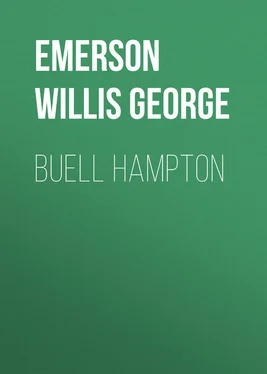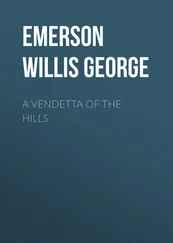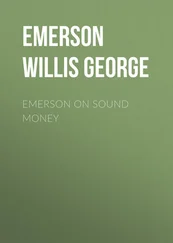Willis Emerson - Buell Hampton
Здесь есть возможность читать онлайн «Willis Emerson - Buell Hampton» — ознакомительный отрывок электронной книги совершенно бесплатно, а после прочтения отрывка купить полную версию. В некоторых случаях можно слушать аудио, скачать через торрент в формате fb2 и присутствует краткое содержание. Жанр: foreign_antique, foreign_prose, на английском языке. Описание произведения, (предисловие) а так же отзывы посетителей доступны на портале библиотеки ЛибКат.
- Название:Buell Hampton
- Автор:
- Жанр:
- Год:неизвестен
- ISBN:нет данных
- Рейтинг книги:5 / 5. Голосов: 1
-
Избранное:Добавить в избранное
- Отзывы:
-
Ваша оценка:
- 100
- 1
- 2
- 3
- 4
- 5
Buell Hampton: краткое содержание, описание и аннотация
Предлагаем к чтению аннотацию, описание, краткое содержание или предисловие (зависит от того, что написал сам автор книги «Buell Hampton»). Если вы не нашли необходимую информацию о книге — напишите в комментариях, мы постараемся отыскать её.
Buell Hampton — читать онлайн ознакомительный отрывок
Ниже представлен текст книги, разбитый по страницам. Система сохранения места последней прочитанной страницы, позволяет с удобством читать онлайн бесплатно книгу «Buell Hampton», без необходимости каждый раз заново искать на чём Вы остановились. Поставьте закладку, и сможете в любой момент перейти на страницу, на которой закончили чтение.
Интервал:
Закладка:
The rich, deep voice of the old captain quivered a little as he spoke, and a shadow of melancholy flitted across his face.
“You will not be disappointed with the profits,” he continued, – “they are certainly enormous compared with returns on money in the middle or eastern States.”
“I am quite sure,” replied Hugh, “that I shall like the change to the frontier, although it differs vastly from the busy metropolis that I have just left.”
“Doubtless,” said the captain, “the contrast is very marked. There are many reasons why I like southwestern Kansas. The climate is superb; then there are so many old soldiers here, and you know between the veterans there is a sort of unspoken friendship. Scattered throughout our valleys and across our prairies you will find the boys who wore the blue and those who wore the gray dwelling on adjoining farms, and the best of neighbors. There are many old soldiers of the late war living among us; one of the most prominent of whom is Major Buell Hampton, editor of the Patriot . While he and I differ materially in politics, yet, withal, he is a most cultured and entertaining gentleman. I have understood in a vague way that he won his title fighting for the Southern cause. Then, there’s Mr. John Horton, – perhaps the most extensive cattle owner in the Southwest. His herds cover not only his own vast range, but also the plains of No-Man’s-Land and northern Texas. Before the recent rush of settlers into this part of Kansas it was a great range for his cattle.”
“Has the settlement of the country inconvenienced the cattlemen?” inquired Hugh.
“Considerably,” replied the captain. “You see the cattlemen have a theory that this is not a farming country. The settlers know better. Now last year and the year before there were no finer crops anywhere in the world than were grown on the farms in this part of the State. The old earth was recklessly improvident in her generosity; every farm was an overflowing granary of plenty. However, we have no quarrel with John Horton. He is one of our largest depositors, and a very manly fellow. His millions have not turned his head, although I cannot say as much for all members of his family. Ah, here comes a young scapegrace that I want you to know.”
As the captain spoke, a little boy came bounding toward him through the open door of his private office, and nestled on his knee. The captain caressed him tenderly. The boy slipped one arm coaxingly about his father’s neck, and received the introduction to Hugh very bashfully.
“This is my boy Harry,” said the captain.
The little fellow was perhaps not more than five years old, but his face beamed with an older intelligence.
“We are great companions,” said the captain, “and he takes more liberties with me than he has any right to – that’s what you do, you little rascal,” said he, addressing the boy and giving him an affectionate hug.
“Won’t you come to me, Harry?” said Hugh, in a coaxing voice.
“No, sir, ‘cause we’re not ‘kainted yet – when we is ‘kainted I will.”
“This gentleman is my friend, Harry,” said the father, “and therefore he is your friend, too.”
“All ‘ite, then,” said the boy, “I’s your fwend, too,” and he held out his hand, which Hugh clasped as a bond of good-fellowship between them.
Hugh Stanton very early discovered that Captain Osborn’s life was centred in his young son. That evening, by invitation of the captain, Hugh dined at the Osborn home. He was very much surprised at the youthful appearance of the captain’s lovely wife. She made no efforts to conceal her feelings of superiority and indifference toward the captain, but she was very gracious toward Hugh, and chatted away incessantly about her travels and her English friends. It seemed that the iron will of the captain, which he was noted for exercising in the business world, was changed to all forbearance and courtly respect toward his wife; although one could readily discover a sad lack of sympathy between them. Indeed, there was but little in common between Captain Osborn and his wife. During dinner the captain made some remark relative to the superiority of American institutions, when his wife quickly interposed:
“Captain, you know nothing about it. You will do far better to discuss matters of business, bank stocks, and that sort of thing. They seem to suit your particular style of intellect; but of society and what constitutes the best taste, why, really, you are not an authority.”
The captain reddened a little, and replied, quietly, “Very well, Lucy, I freely acknowledge your superior judgment in such matters – perhaps I ought not to have spoken; but I know one thing,” said he, chucking little Harry under the chin, “this boy and I are in love with each other, is n’t that so, Harry?”
“Yes, we’s made a barg’in, mamma,” cried the little fellow, “papa and I is lovers, and when I dets big I’s doin’ to be his par’ner.”
“Indeed!” said his mother, as she elevated her eyebrows. “You and your papa have delightful times together. Well, I am glad of the attachment,” said she, turning toward Hugh with a wearied expression, as much as to say, “Let them go their way, and I will go mine.”
“I hope to see much of you, Mr. Stanton,” she said, with her most bewitching smile. “Are you fond of society?”
Hugh confessed that he knew but little of the social world, having led a rather busy and secluded life.
“Well, you will not see much society in southwestern Kansas,” observed Mrs. Osborn.
“My dear, you must introduce him to the Hortons,” ventured the captain.
“With pleasure,” replied his wife. “Mrs. J. Bruce-Horton and I are very close friends. We but recently returned from England, where her daughter, Ethel, was graduated last June. We have many friends across the water.”
The old captain looked deep into his cup of tea, while an ironical smile played across his face. “Our English cousins,” he remarked, “are very partial to American dollars.”
“Oh, Captain,” exclaimed his wife, while her smiles disappeared and a look of displeasure replaced them, “I have before observed on numerous occasions that you know nothing of England, her customs or her people, and light remarks about my English friends are not relished, I assure you.”
The captain laughed good-naturedly, as he winked at Hugh, and said, “I beg your pardon, Lucy, my dear, I was only quoting a view I saw expressed recently in the Financial Gazetteer. ”
“Yes, in the Financial Gazetteer ,” repeated his wife, contemptuously, “you are competent to judge things only from a strictly commercial standpoint, and it would be much better for you not to speak than to make such stupid remarks.”
She again relaxed and turned toward Hugh with a charming graciousness. “Yes, I shall be pleased, Mr. Stanton, to introduce you to the Hortons. Miss Ethel is a delightful young lady; but mind,” said she, coquettishly shaking her finger at him, “you must not lose your heart, as she is already spoken for.”
“Oh, indeed!” replied Hugh, “how unfortunate for me!”
“What,” said the captain, “is Miss Ethel to be married?”
“Now, Captain,” and the tiger’s claw protruded just a little as she spoke, “you must not ask direct questions. At present it is quite a secret; but as a friend I was only warning Mr. Stanton, and ‘forewarned is forearmed,’ you know.”
“Very well,” said Hugh, “I know I shall be delighted to meet them, as they are such friends of yours.”
“Oh, thank you,” replied Mrs. Osborn, bowing at the compliment.
“Friends of ours, too,” remarked the captain. “Think of John Horton’s fat bank account.”
Читать дальшеИнтервал:
Закладка:
Похожие книги на «Buell Hampton»
Представляем Вашему вниманию похожие книги на «Buell Hampton» списком для выбора. Мы отобрали схожую по названию и смыслу литературу в надежде предоставить читателям больше вариантов отыскать новые, интересные, ещё непрочитанные произведения.
Обсуждение, отзывы о книге «Buell Hampton» и просто собственные мнения читателей. Оставьте ваши комментарии, напишите, что Вы думаете о произведении, его смысле или главных героях. Укажите что конкретно понравилось, а что нет, и почему Вы так считаете.












